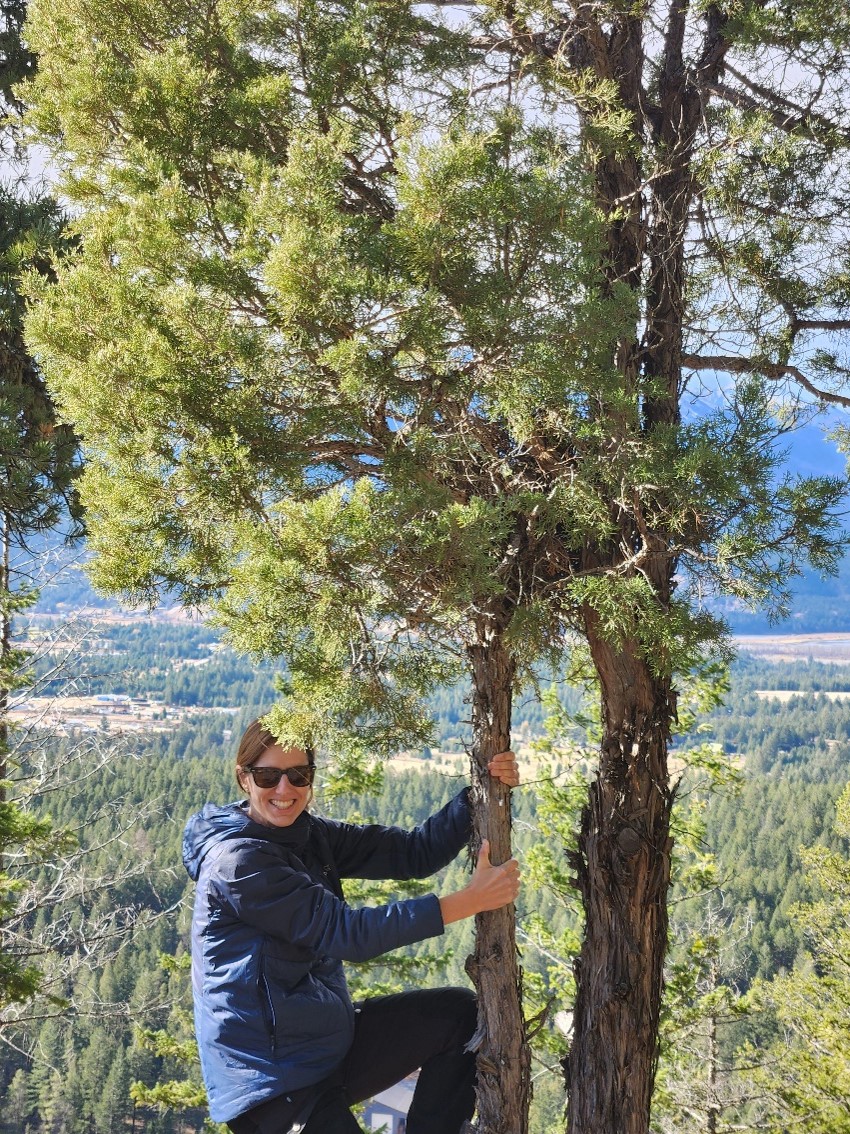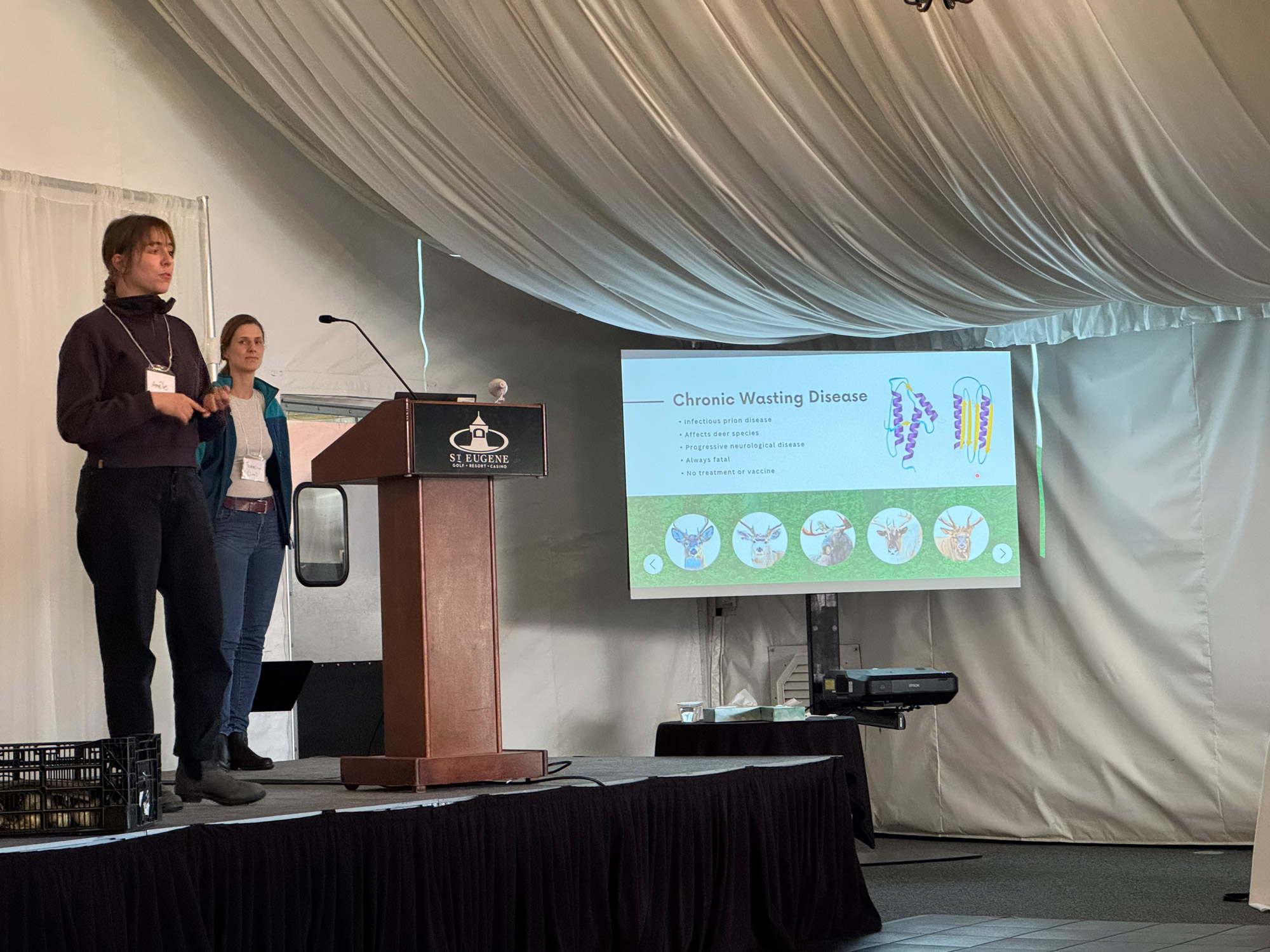Featuring Tzvetelina Petkova, an Environmental Health Officer in the East Kootenays

Environmental Health Officers (EHOs) at First Nations Health Authority (FNHA) are partners to communities and provide advice and guidance to First Nations leadership in BC on a wide range of environmental health topics, including drinking water, food safety, air quality, and emergency preparedness and response. We're sharing this story about Tzvetelina Petkova to provide greater understanding of what a typical day looks like for an EHO and why their role helps protect community wellness.
Based in the East Kootenays, Interior Region, Tzvetelina has been an EHO with FNHA for four years supporting the Ktunaxa and Secwepemc (Shuswap in Invermere, BC).
In her role, Tzvetelina works across a wide range of environmental public health areas, from drinking water and wastewater to food safety, housing, and emergency preparedness. She's passionate about building relationships and supporting communities in protecting their health and environment.
Empowering Communities with Knowledge
No two days are the same for Tzvetelina. One day she could be supporting the decommissioning of an existing septic field (the underground part of a septic system that filters liquid wastewater from the tank into the soil); the next, training water monitors or assisting at a pressure canning workshop preserving elk stew.
With seven years of experience and a deep respect for the communities she serves, Tzvetelina takes pride in work that's both practical and impactful. Collaboration and adaptability are at the heart of what she does.
“My work contributes to wellness by empowering communities with knowledge and training," she says. “It's about building trust and helping people make informed decisions that support long-term well-being."
Staying Connected, Building Trust
As Tzvetelina reflects on her work, it's clear that being an EHO is about so much more than just inspections and reports. It's about building trust, relationships and being flexible enough to handle whatever the day brings.
“I'm especially proud of the connections I've made with community staff" she shares. “Those relationships make all the difference when we're working together to solve health and environmental challenges."
Her experiences are a reminder of how diverse and rewarding this role can be, all while staying connected to the communities she serves. It's that blend of technical skill and genuine community connection that makes her work both meaningful and impactful.
At the heart of it all, Tzvetelina shows that protecting public health isn't just about preventing risks. It's about empowering and supporting communities to strengthen their own capacity for health and wellness.
Interior Food Forum Presentation: Chronic Wasting Disease

During her work in the East Kootenays, Tzvetelina has also been raising awareness about Chronic Wasting Disease (CWD), a fatal neurological illness affecting deer species, such as mule deer, white-tailed deer, elk, moose, and caribou. The disease is caused by abnormal proteins called prions, which damage the brain and nervous system, leading to severe weight loss and behavioural changes.
In 2024, four cases of CWD were confirmed in wild deer in the areas near Cranbrook, marking BC's first detections of the disease. While there are no known cases of CWD in humans, it remains a growing concern for wildlife health, traditional harvesting, and food safety in the Interior regions of BC.
On Oct. 22, Tzvetelina co-presented with Amelia Mathieu, wildlife veterinarian with the BC Wildlife Branch, at the Interior Regional Indigenous Food Forum. Together, they shared practical information on monitoring, prevention, and safe handling of harvested meat, while helping raise awareness about the surging risks of CWD and ways to safeguard community food practices.
Their presentation highlighted how EHOs can support communities through education, surveillance, and collaboration with partners like the BC Wildlife Brand and Interior Health.
To explore more about CWD, its impacts, and how communities and governments are responding, check out these resources:
Contacts & Supports
Supporting Indigenous Students in Environmental Health
One path to becoming a certified EHO is through BCIT's Bachelor of Environmental Public Health program. Financial supports are available for Indigenous students to succeed. To find out more, visit: Environmental Public Health, Bachelor of Environmental Public Health, Full-time (8520BENVH) - BCIT
Contact your Local Environmental Health Officer
To reach out to your local EHO from 8 a.m. – 4 p.m. during the weekdays, contact environmental.health@fnha.ca. For afterhours emergencies, contact ephs.afterhours@fnha.ca or 1-844-666-0711. All calls or emails received after 10 p.m. will be responded to the following day at 6 a.m.

